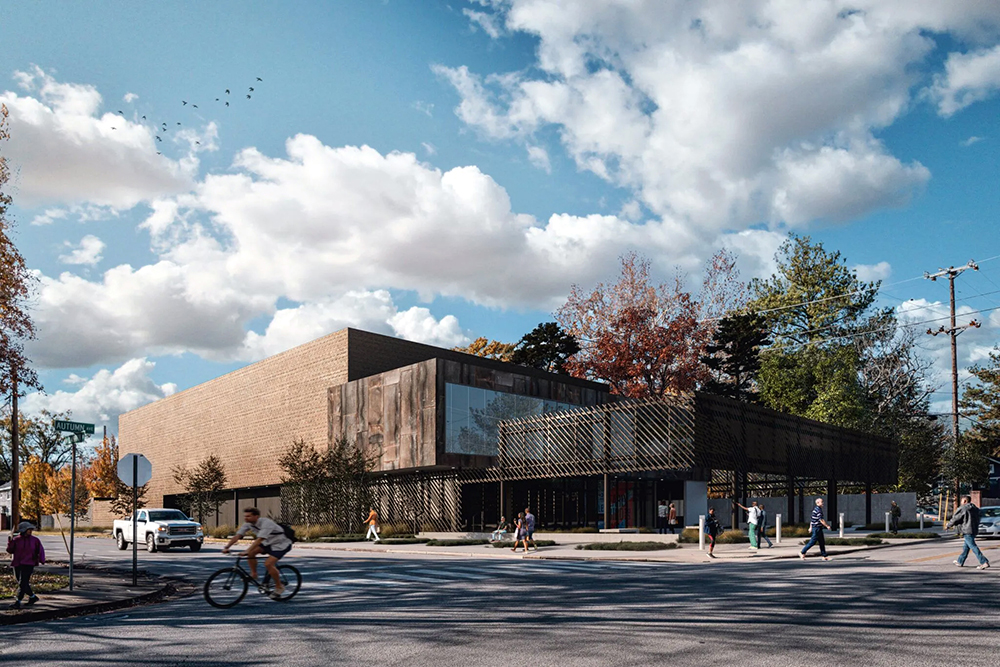If you live in Memphis, you’ve likely heard phrases like “home of the blues,” “heart of soul music,” and “birthplace of rock-and-roll.” Ask anybody; even Google AI insists (so it must be true). Yet Memphians have also seen their favorite artist skip over FedExForum for a tour stop in Little Rock. Despite the rich musical talent and history, Memphis is not a popular destination for national tours. Last-minute cancellations are not uncommon either, as seen just a few years ago with Drake and Moneybagg Yo. Still, locals pride themselves on a vibrant and historical music scene, which is undeniably true. Stax Records, Royal Studios, the Memphis Drum Shop, Easley McCain Recording, Sun Studio — the list goes on. Online lists of the nation’s distinguished music cities frequently rank Memphis in the top 10. But, over the past couple of decades, Memphis has resembled a black hole in the major touring circuit. If asked why, artists would likely say it’s not personal, just business.
Simply put, ticket sales here are unpredictable. Memphis has a reputation as a “walk-up” city, meaning tickets are typically bought as a last-ditch effort instead of far in advance. This could be related to Memphis’ relatively low socioeconomic level. This is not to say Memphis has no appetite for live music. Just look around: Music is everywhere. There are roughly 60 locations within Memphis city limits that provide live music and entertainment, and these locations would not be paying musicians without their ability to attract an audience.
Last December, a partnership between national entertainment agency Live Nation and Crosstown Concourse spawned the construction of a new Memphis venue. Sitting right next to the Concourse, the 1,500-seat venue is expected to host roughly 100 events a year, ranging from comedy to corporate meetings to concerts. Similar types of events can be seen at The Green Room at Crosstown Arts or The Crosstown Theater, albeit with smaller crowds. According to a press release, the new venue is projected to bring more than 150 music industry jobs to Memphis, with base starting salaries of $20/hour, (theoretically) filling a Nashville-sized hole in Memphis’ professional music market. The press release steers clear of this comparison; rather, their plan is to “honor Memphis’ rich musical heritage while filling a key gap in the market, providing a platform for artists eager to perform in the city.” Here, in this almost-mission statement, lies the mysterious “black hole” of live music in Memphis.
By filling a market gap, Live Nation means providing a more “legitimate” venue for big artists to schedule shows. But what about all the other larger venues in Memphis? There’s Minglewood Hall, Memphis Botanic Garden’s Radian Amphitheater, FedExForum, and even smaller locations like Lafayette’s Music Room that have boasted plenty of national acts. Is this “gap” due to a lack of venues, or is it a lack of artists’ interest? The latter seems more likely. But Live Nation’s massive list of nationwide artists likely bolsters their confidence to “fill the gap.” This is what Sherman Willmott, founder of Shangri-La Projects and local music expert, feels the public should be focusing on.
“I think the lede here … is not the venue; it’s Live Nation booking. They’re filling a big empty hole that started with the death of Bob Kelley. Over that time period of the last 25 to 30 years, there’s been no … full-service promotion in town,” Willmott says. Bob Kelley, booker and promoter of Mid-South Concerts, died in 1998. The booking world since then has become “monopolistic. … There’s very few providers.” Memphis especially is not known for large booking agencies/promoters or music business infrastructure, hence the potential impact of Live Nation booking on the Memphis music scene. Memphians will have access to hundreds more artists in pop, indie, electronic, hip-hop, country, and more. Even if the venue starts out slow, Live Nation will likely be able to keep it afloat long enough to catch on. “There’s no one with deeper pockets,” says Willmott.
The introduction of Live Nation to Memphis could point the city in a new direction regarding industry jobs, but 150 of them is a lot to promise. Willmott says he does not “see them hiring that number of people,” drawing on comparisons between the Orpheum Theatre and The Green Room, each of which has a smaller staff. But if the new venue does hire that many, it’s possible for a larger music business market to open up in Memphis.
Naturally, there are some fears and questions about a nationwide corporation like Live Nation (recently involved in an antitrust lawsuit) digging their claws into the Memphis music community. But Willmott points out the role of Crosstown Concourse in the new venue’s booking process: “Bookings at Crosstown are … between 70 and 90 percent local artists.” After all, Crosstown was designed to uplift the community arts, and events at The Green Room or Crosstown Theater do just that. Further, the vertical village supports education (Crosstown High School) and healthcare (Church Health). It is hard to imagine Crosstown wavering from this community-focused vision, even when working with a corporate giant like Live Nation.
Sure enough, things are changing around Memphis. RiverBeat Music Festival is back for its second year in a row, boasting an even bigger lineup of global artists as well as a surefire program of lively and talented local artists like Jombi and Lina Beach. Grind City Brewing Company and Barbian Entertainment just announced a new venue, Grind City Amp, boasting a max capacity of 4,500 and a deep backdrop of Downtown Memphis. The outdoor venue is set to open in the spring of 2026. Although Live Nation and Crosstown have not specified their venue’s opening date, there seems to be a new era of shows coming to Memphis. Let’s hope our favorite artists start showing up on the bills.
